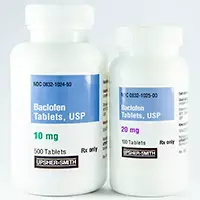- Home
- Medical news & Guidelines
- Anesthesiology
- Cardiology and CTVS
- Critical Care
- Dentistry
- Dermatology
- Diabetes and Endocrinology
- ENT
- Gastroenterology
- Medicine
- Nephrology
- Neurology
- Obstretics-Gynaecology
- Oncology
- Ophthalmology
- Orthopaedics
- Pediatrics-Neonatology
- Psychiatry
- Pulmonology
- Radiology
- Surgery
- Urology
- Laboratory Medicine
- Diet
- Nursing
- Paramedical
- Physiotherapy
- Health news
- Fact Check
- Bone Health Fact Check
- Brain Health Fact Check
- Cancer Related Fact Check
- Child Care Fact Check
- Dental and oral health fact check
- Diabetes and metabolic health fact check
- Diet and Nutrition Fact Check
- Eye and ENT Care Fact Check
- Fitness fact check
- Gut health fact check
- Heart health fact check
- Kidney health fact check
- Medical education fact check
- Men's health fact check
- Respiratory fact check
- Skin and hair care fact check
- Vaccine and Immunization fact check
- Women's health fact check
- AYUSH
- State News
- Andaman and Nicobar Islands
- Andhra Pradesh
- Arunachal Pradesh
- Assam
- Bihar
- Chandigarh
- Chattisgarh
- Dadra and Nagar Haveli
- Daman and Diu
- Delhi
- Goa
- Gujarat
- Haryana
- Himachal Pradesh
- Jammu & Kashmir
- Jharkhand
- Karnataka
- Kerala
- Ladakh
- Lakshadweep
- Madhya Pradesh
- Maharashtra
- Manipur
- Meghalaya
- Mizoram
- Nagaland
- Odisha
- Puducherry
- Punjab
- Rajasthan
- Sikkim
- Tamil Nadu
- Telangana
- Tripura
- Uttar Pradesh
- Uttrakhand
- West Bengal
- Medical Education
- Industry
Baclofen significantly reduces agitation in alcohol Withdrawal patients in ICU: JAMA

In the intensive care unit (ICU), patients with unhealthy alcohol use have a higher risk of death and often experience agitation and/or delirium, which can compromise medical care and lead to long-term psychological sequelae. A recent study suggests that high-dose of baclofen significantly reduced agitation-related events, among patients with unhealthy alcohol use receiving mechanical ventilation. The research has been published in the JAMA on February 23, 2021.
Guidelines from 2018 for the management of agitation and sedation in the ICU, recommend against a pharmacological prevention strategy for agitation unless there is a specific risk factor. Although unhealthy alcohol use has been identified as a risk factor for agitation, there is no specific recommendation for the management of sedation in this high-risk population. Researchers of France hypothesized that Baclofen, which acts as a γ-aminobutyric acid type B receptor agonist and may decrease or suppress alcohol craving in patients with alcohol use disorder. Therefore, they conducted a study to assess whether high-dose baclofen reduces agitation-related events compared with placebo in patients with unhealthy alcohol use receiving mechanical ventilation.
It was a phase 3, double-blind, placebo-controlled, randomized clinical trial conducted in 18 ICUs in France of 314 adults receiving mechanical ventilation who met criteria for unhealthy alcohol use. Researchers randomized the patients to receive baclofen (n = 159) or placebo (n = 155) during mechanical ventilation up to a maximum of 15 days before gradual dose reduction over 3 to 6 days. The major outcome assessed was the percentage of patients with at least one agitation-related event over the treatment period. Researchers also assessed the duration of mechanical ventilation, length of ICU stay, and 28-day mortality.
Key findings of the study were:
• Upon analysis, researchers noted a statistically significant decrease in the percentage of patients who experienced at least one agitation-related event in the baclofen group vs the placebo group (31 [19.7%] vs 46 [29.7%]; difference, −9.93%; adjusted odds ratio, 0.59).
• Of 18 prespecified secondary endpoints, they observed no statistical difference in 14 endpoints.
• Compared with the placebo group, they found that the baclofen group had a significantly longer median length of mechanical ventilation (9 vs 8days; difference, 2.00; hazard ratio [HR] for extubation, 0.76) and stay in the ICU (14 vs 11 days; difference, 2.00]; HR for discharge, 0.70).
• However, at 28 days, they observed no significant difference in mortality in the baclofen vs placebo group (25.3% vs 21.6%; adjusted odds ratio, 1.24).
• They also noted delayed awakening (no eye-opening at 72 hours after cessation of sedatives and analgesics) in 14 patients (8.9%) of the baclofen group vs 3 (1.9%) in the placebo group.
The authors concluded, " Among patients with unhealthy alcohol use receiving mechanical ventilation, treatment with high-dose baclofen, compared with placebo, resulted in a statistically significant reduction in agitation-related events."
They further added, "However, considering the modest effect and the totality of findings for the secondary endpoints and adverse events, further research is needed to determine the possible role of baclofen in this setting and to potentially optimize dosing."
For further information:
https://jamanetwork.com/journals/jama/fullarticle/2776690
Medical Dialogues Bureau consists of a team of passionate medical/scientific writers, led by doctors and healthcare researchers. Our team efforts to bring you updated and timely news about the important happenings of the medical and healthcare sector. Our editorial team can be reached at editorial@medicaldialogues.in.
Dr Kamal Kant Kohli-MBBS, DTCD- a chest specialist with more than 30 years of practice and a flair for writing clinical articles, Dr Kamal Kant Kohli joined Medical Dialogues as a Chief Editor of Medical News. Besides writing articles, as an editor, he proofreads and verifies all the medical content published on Medical Dialogues including those coming from journals, studies,medical conferences,guidelines etc. Email: drkohli@medicaldialogues.in. Contact no. 011-43720751


